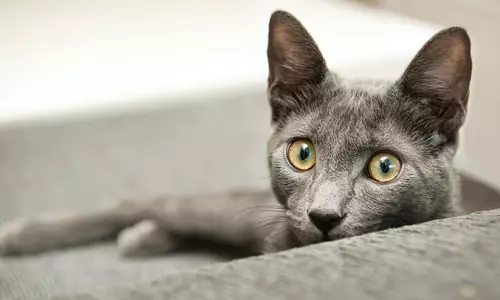When it comes to integrating a feline companion into a family environment, the breed’s personality can significantly influence the harmony within the household. While cats are often celebrated for their independence and affectionate nature, not all breeds lend themselves equally to the lively energy of young children. A critical examination of various breeds reveals that some are inherently more adaptable, patient, and tolerant—traits that are invaluable in a bustling home. Conversely, many breeds possess sensitivities that may not mesh well with the unpredictable chaos of little ones. Recognizing these temperament differences underscores the importance of selective breed choice to foster a positive relationship between children and their feline friends.
breeds Less Suitable for Young Children: Recognizing Limitations
Certain breeds, such as the Himalayan, have a serene and gentle demeanour but exhibit a preference for quieter settings. Their delicate nature can be strained by the loud, energetic antics of children, leading to stress or withdrawal. Similarly, the Russian Blue is often praised for its intelligence and loyalty, yet its shyness demands a calm, gentle handling that young children may inadvertently disrupt. Breeds like these highlight how a mismatch in personalities can create friction—what might be a perfectly affectionate cat in a calm household could become withdrawn or irritable amid chaos.
Adapting Expectations: Recognizing Breed-Specific Needs
Other breeds present a different set of challenges and opportunities. Savannah cats, for example, are highly active and social but prefer autonomy over physical affection. They require an environment where they can engage on their own terms—an aspect that older, more experienced children can understand and respect. Conversely, Turkish Vans are undeniably affectionate but dislike prolonged cuddling or restraint, traits that might confuse or frustrate young children unfamiliar with boundaries. Their independence serves as a reminder that even affectionate breeds need space, and respecting this is key to fostering a positive relationship.
Ideal Candidates: Resilient Cats for Dynamic Homes
The Singapura offers insight into breeds that can flourish in lively household settings. This breed’s sociability and fondness for affection are only beneficial if the environment remains relatively calm and structured. Loud noises and chaos can overwhelm them, making them unsuitable for households with extremely noisy or unpredictable children. However, older children who understand and respect the needs of these cats can create a nurturing environment that promotes bonding and mutual respect.
The Bottom Line: Mindful Selection for Long-Term Happiness
Choosing a feline friend for a family isn’t just about breed stereotypes; it requires a nuanced understanding of personality dynamics and individual temperament. By critically evaluating each breed’s sensitivities and preferences, families can avoid pitfalls and foster lasting, positive relationships. Ultimately, deliberate selection aligned with the household’s lifestyle and children’s maturity levels can turn a pet’s temperament into an asset, ensuring a joyful, harmonious coexistence.

